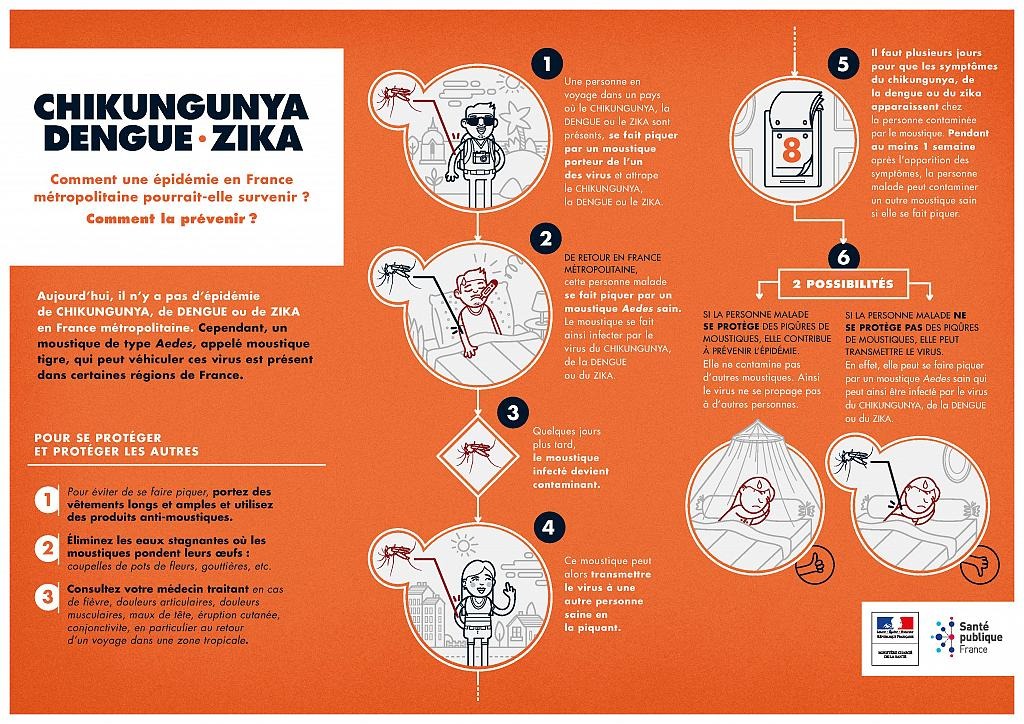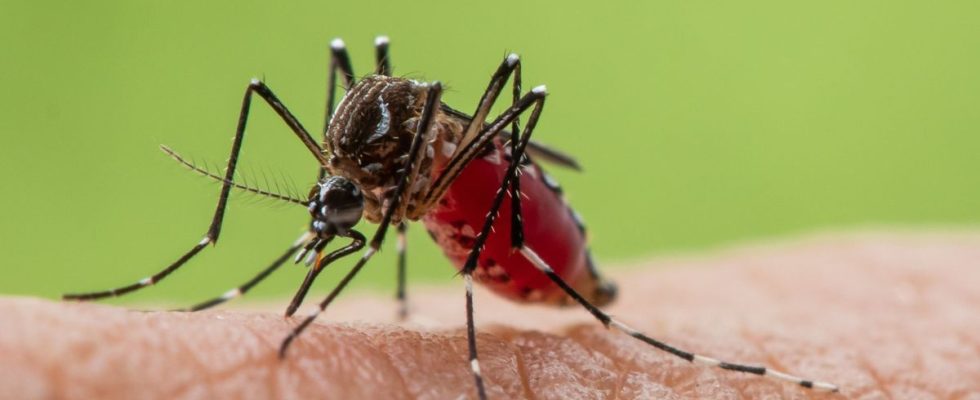Published on
Updated
Reading 2 mins.
Two residents of Gardanne, near Marseille in the Bouches-du-Rhône, were infected with dengue fever. Beyond these first two indigenous cases, more than 227 cases have been imported from abroad since May 1.
Two autochthonous cases of dengue have been reported near Marseille. This means that those affected have not returned from a contaminated area and have therefore been infected with the virus on French territory.
Dengue fever is a virus that is transmitted through a Aedes albopictus, better known under the common name of mosquito-tiger. The latter, carrier of the virus, transmits it to his victims by sting. A situation taken seriously by the Regional Health Agency (ARS) of Provence-Alpes-Côte d’Azur, given the growing number of these mosquitoes.
In a press release on the subject, ARS Paca announces that “to prevent the spread of the disease, mosquito control was carried out [vendredi matin] within a radius of 200 meters in the neighborhood where the cases live (public road, private gardens)“.
A door-to-door survey completes this system, in order to detect other people who may be carriers of symptoms and to take preventive action on what to do, as soon as the first signs of the disease appear.
What are the symptoms of dengue fever?
Dengue fever causes high fevers associated with headaches, body aches and a feeling of fatigue. Sometimes a pimple rash is associated with these symptoms. Fortunately, in the majority of cases, the disease can be treated at home with painkillers.
But sometimes the disease can progress to severe forms, called dengue hemorrhagic fever, especially in the event of repeated infections. For now, there is no vaccine against this viral disease.
To protect yourself from this viral pathology, the only means of acting are to avoid the multiplication of mosquitoes, vectors of the disease, and to protect yourself from their bites.

It is therefore recommended for avoid the proliferation of mosquitoes
- Remove saucers or empty the water regularly, change the water in flower vases 2 to 3 times a week (otherwise have plants in the ground or fill the bottoms of pots with damp sand);
- Cover rainwater collection barrels and wells with mosquito netting or fabric;
- Protect the overflow of cisterns in the same way;
- Check the good condition of the gutters, channels, rainwater manholes and the good flow of water in general;
- Eliminate all waste, bulky items and various objects that could serve as containers around the home (bottles, tires, trays, cans, etc.).
To protect against mosquito bitesit is advisable to:
- Wear covering and loose clothing;
- Use a skin repellent, preferably in the morning and in the evening, recommended by a pharmacist, on exposed areas of skin;
- If necessary, use mosquito nets on the openings (doors and windows);
- Use crib nets for newborns;
- Use electric diffusers inside homes;
- Use insecticide coils only outdoors;
- Use air conditioners or fans that interfere with mosquitoes.
Finally, it is important to immediately consult your doctor in the presence of symptoms. suggestive (high fever, muscle or joint pain, eye pain, fatigue, headaches, etc.).
